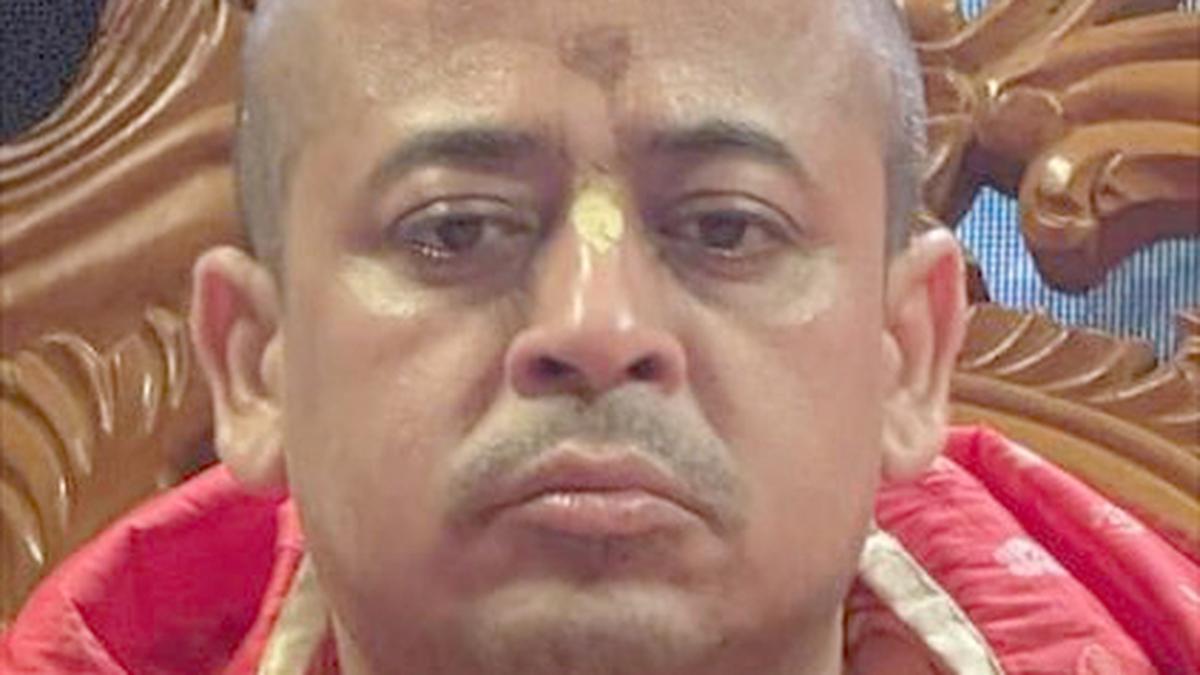
ISKCON Bangladesh denounces arrest of Chinmoy Krishna Das, calls for peaceful coexistence
The Hindu
ISKCON Bangladesh denounces arrest of Chinmoy Krishna Das, demands justice and peaceful coexistence for Sanatanis in Bangladesh.
ISKCON Bangladesh has issued a statement denouncing the arrest of Chinmoy Krishna Das and called upon the government authorities to promote peaceful coexistence.
ISKCON Bangladesh also issued a list of demands to the government for subsequent violence and attacks against Sanatanis in various regions of Bangladesh.
ISKCON Bangladesh made note of the above points and more matters in a statement issued, regarding the current situation in Bangladesh and the arrest of Chinmoy Krishna Das.
"We express our serious concern and strongly denounce the recent arrest of Chinmoy Krishna Das, spokesperson for the Bangladesh Sammilito Sanatani Jagaran Jot. We also condemn the subsequent violence and attacks against Sanatanis in various regions of Bangladesh. We urge the government authorities, to promote peaceful coexistence for the Sanatani community", the statement said.
"As a representative of the Bangladesh Sammilito Sanatani Jagaran Jot and a Bangladeshi citizen, Chinmoy Krishna Das has been a vocal advocate for the protection of minority groups in the nation. It is essential to uphold his right to free speech and to support his efforts to encourage others to defend this right. Ensuring justice and fair treatment for him is crucial", the statement observed.
It also said, "Chinmoy Krishna Das and the Sanatani community deserve justice as citizens of this country, and we stress that any form of discrimination against them must not be tolerated".
ISKCON Bangladesh listed three demands to "the Government and Relevant Authorities". These include identifying and holding accountable those responsible for the attacks on the Sanatani community, protecting the civil rights of Chinmoy Krishna Das and other Sanatanis and implementing immediate and effective measures to maintain peace and harmony among all communities in the country.

“Writing, in general, is a very solitary process,” says Yauvanika Chopra, Associate Director at The New India Foundation (NIF), which, earlier this year, announced the 12th edition of its NIF Book Fellowships for research and scholarship about Indian history after Independence. While authors, in general, are built for it, it can still get very lonely, says Chopra, pointing out that the fellowship’s community support is as valuable as the monetary benefits it offers. “There is a solid community of NIF fellows, trustees, language experts, jury members, all of whom are incredibly competent,” she says. “They really help make authors feel supported from manuscript to publication, so you never feel like you’re struggling through isolation.”

Several principals of government and private schools in Delhi on Tuesday said the Directorate of Education (DoE) circular from a day earlier, directing schools to conduct classes in ‘hybrid’ mode, had caused confusion regarding day-to-day operations as they did not know how many students would return to school from Wednesday and how would teachers instruct in two modes — online and in person — at once. The DoE circular on Monday had also stated that the option to “exercise online mode of education, wherever available, shall vest with the students and their guardians”. Several schoolteachers also expressed confusion regarding the DoE order. A government schoolteacher said he was unsure of how to cope with the resumption of physical classes, given that the order directing government offices to ensure that 50% of the employees work from home is still in place. On Monday, the Commission for Air Quality Management in the National Capital Region and Adjoining Areas (CAQM) had, on the orders of the Supreme Court, directed schools in Delhi-NCR to shift classes to the hybrid mode, following which the DoE had issued the circular. The court had urged the Centre’s pollution watchdog to consider restarting physical classes due to many students missing out on the mid-day meals and lacking the necessary means to attend classes online. The CAQM had, on November 20, asked schools in Delhi-NCR to shift to the online mode of teaching.









